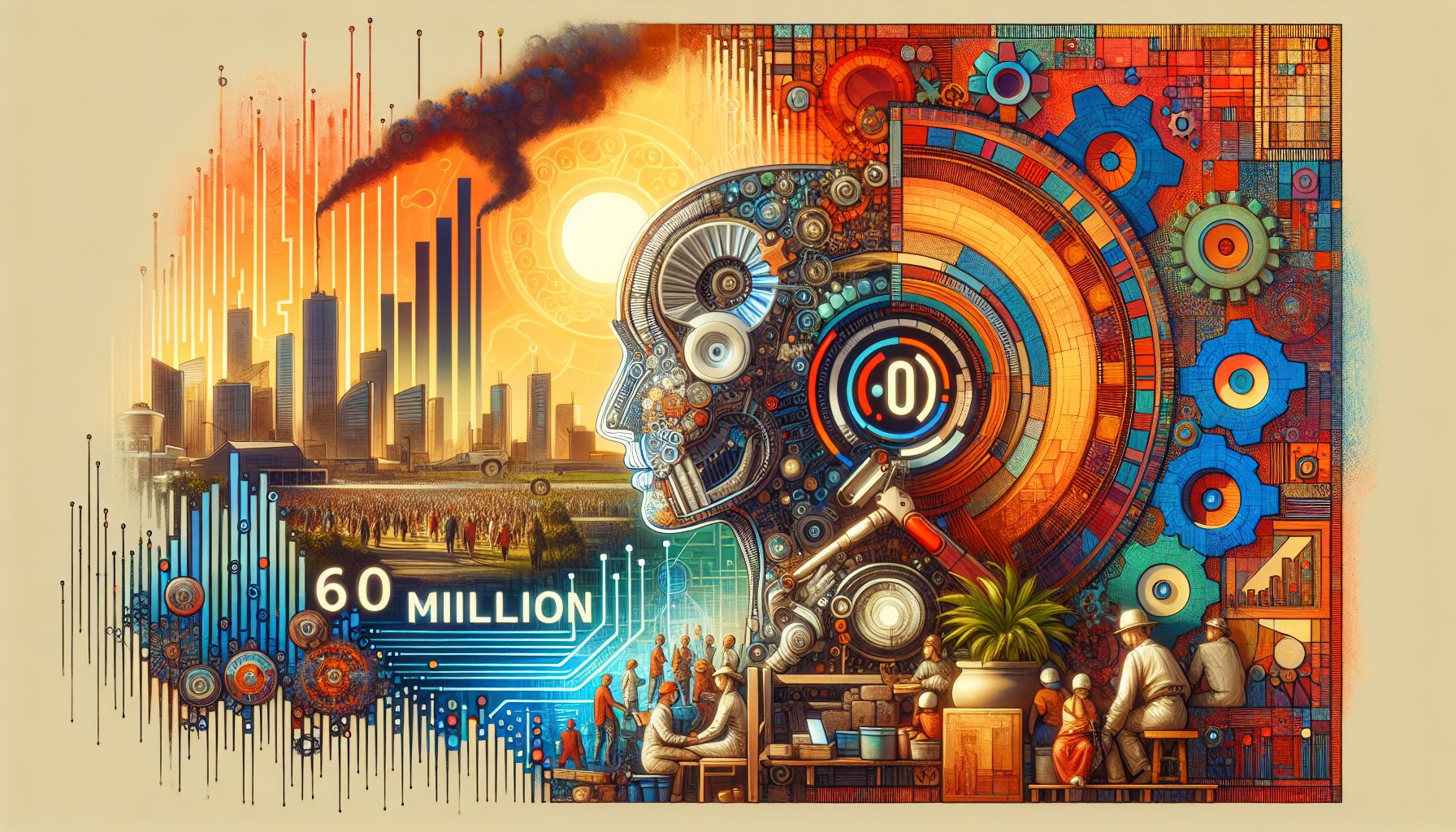AI Set to Transform 60 Million Jobs in US and Mexico

New York, Monday, 16 September 2024.
A new study reveals AI’s imminent impact on labor markets, with 43 million US jobs and 16 million Mexican jobs affected within a year. Women and low-skilled workers face higher vulnerability, raising concerns about potential exacerbation of global inequality.
AI’s Widespread Impact
The Inter-American Development Bank (IDB) study highlights the magnitude of AI’s influence on the labor market, predicting that 43 million jobs in the US and 16 million in Mexico will be affected within the next year. These numbers are projected to rise significantly over the next decade, reaching 70 million jobs in the US and 26 million in Mexico by 2034. This transformative shift is expected to touch a wide range of industries and occupations, with a particular focus on low-skilled and women workers.
Understanding the AI-Generated Index of Occupational Exposure
The AI-Generated Index of Occupational Exposure evaluates more than 750 professions to understand the potential impact of AI on jobs over one, five, and ten-year timelines. The index serves as a vital tool for policymakers and businesses to assess which occupations are most at risk and to develop strategies to mitigate the negative effects. Eric Parrado, chief economist at the IDB, emphasizes that while these numbers do not directly translate to job losses, they indicate a significant vulnerability across various sectors.
The Dual Nature of AI in the Workplace
AI’s role in the labor market is complex, as it not only threatens jobs but also offers opportunities for productivity and growth. The IDB study suggests that technological advancements, while disruptive, historically lead to a readjustment in job markets rather than a net loss in employment. This perspective is echoed by a study published by the Federal Reserve Bank of New York, which found that businesses are more inclined to retrain existing staff and hire new workers to manage AI technologies rather than reduce headcounts[2].
Global Inequality Concerns
Despite the potential for productivity gains, AI’s integration into the labor market raises significant concerns about global inequality. The IDB report indicates that 40% of women in the US and Mexico will be affected by task automation, compared to 38% of men, highlighting a gender disparity in vulnerability. Additionally, low-income workers in the US and both working-class and middle-class jobs in Mexico are particularly at risk. This disparity could exacerbate existing inequalities if not addressed with comprehensive policy measures.
Recommendations for Mitigating Negative Impacts
To counter the adverse effects of AI on the labor market, the IDB and other experts recommend significant investment in education and retraining programs. Improved social safety nets and the integration of AI education into school curriculums are also crucial. These measures aim to equip workers with the skills necessary to thrive in an AI-driven economy and to ensure that the benefits of technological advancements are broadly distributed.
The Role of Policymakers and Businesses
Policymakers and businesses play a critical role in shaping the future of work in an AI-dominated landscape. The IDB’s Eric Parrado calls for a proactive approach to managing AI’s impact, emphasizing the need for a strategic plan to harness AI’s benefits while mitigating its risks. Businesses, on the other hand, are encouraged to adopt a balanced approach, focusing on retraining and upskilling their workforce to adapt to new technological demands.
A Call for Action
The insights from these studies underscore the urgency of addressing the challenges posed by AI. As the world stands on the brink of a new industrial revolution, it is imperative to take decisive action to ensure that the transition to an AI-driven economy is inclusive and equitable. By investing in human capital and fostering a culture of continuous learning and adaptation, societies can navigate the complexities of this technological shift and emerge stronger and more resilient.

